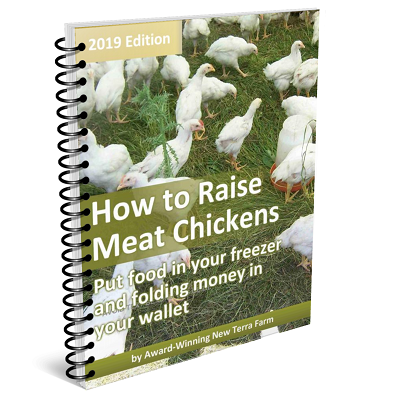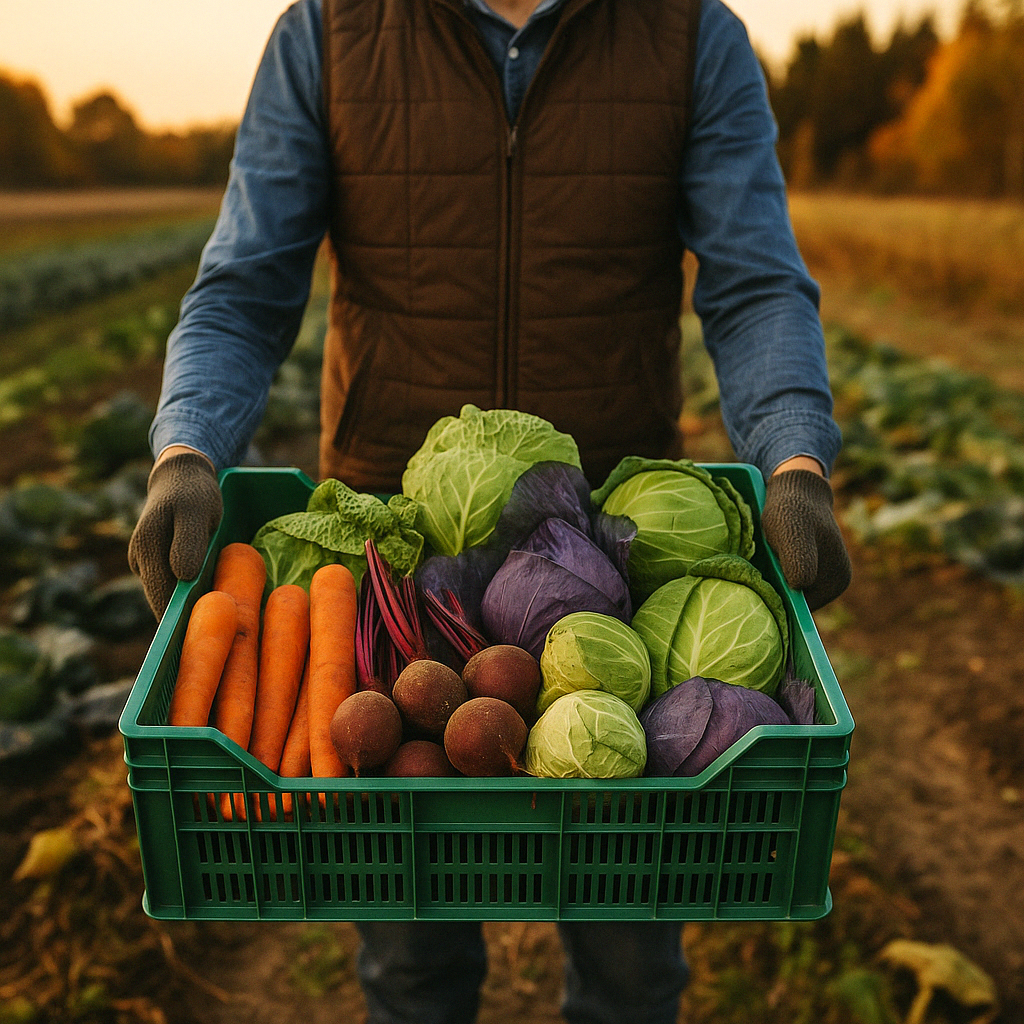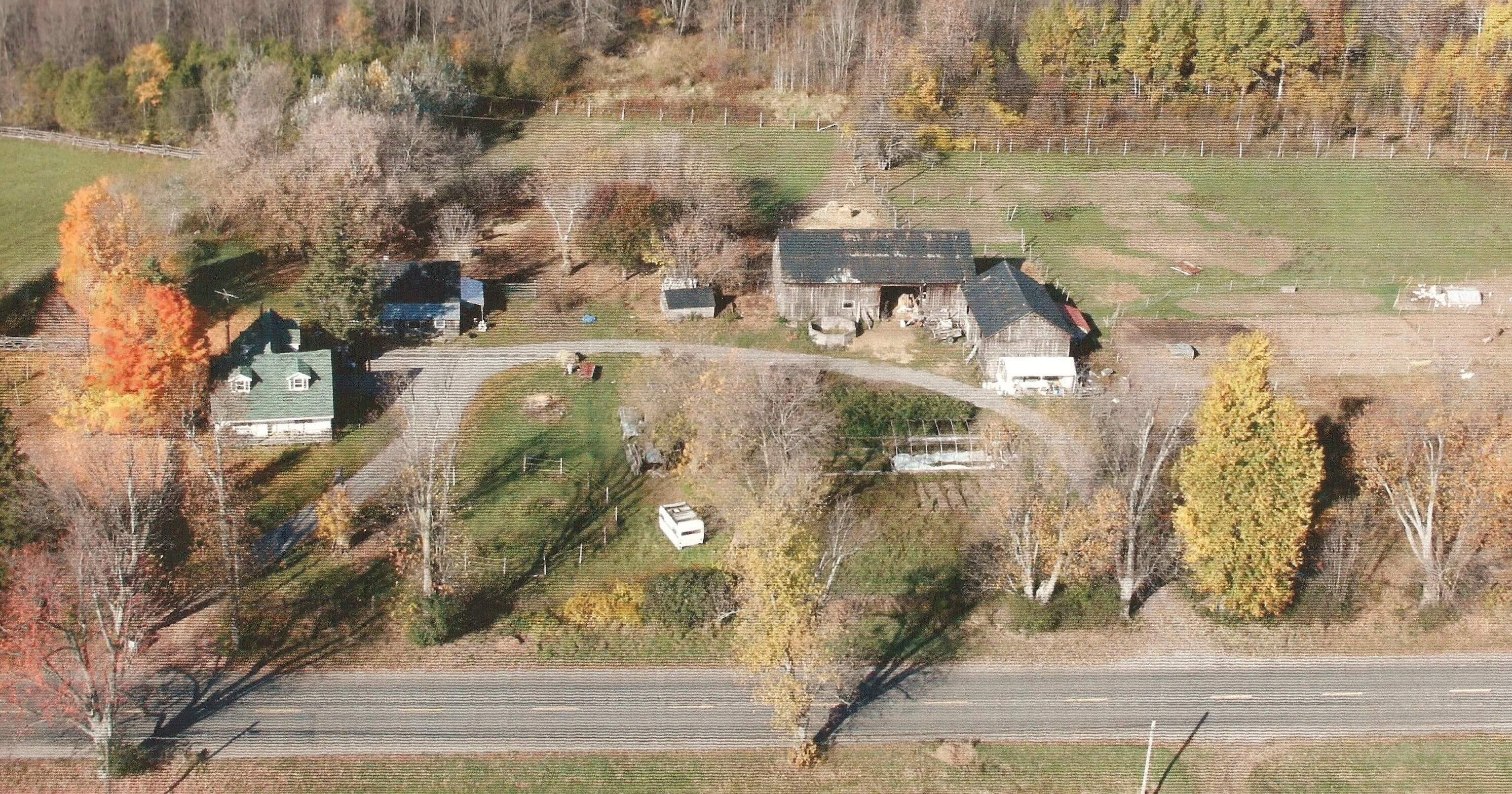Troubles with your chickens (and what to do about it)
We've been raising meat chickens on the farm for almost 20 years. Over that time we have had our challenges getting the birds up to size and off to the abattoir.
However, we now rarely have problems raising a healthy (and profitable) flock Here's a few tips to help avoid troubles with your chickens.
- Overfeeding the birds. -
I think more problems are caused by feeding your meat birds too much rather than too little, especially when they are small.
Too much feed (or too rich feed) will cause the birds to put on weight faster than their skeletal structure and internal organs can support. Chick starter feed should have a protein content of 20-21%. Grower should have a protein content of 17-18%. Try not to exceed that. If your birds develop spraddle leg, remove all feed for 24 to 48 hours; give them water only.
For example, this year I'm raising my birds in batches of 75 at a time; I start out feeding them just over a pound of feed twice a day. It takes a couple weeks to work up to 2 pounds twice a day.
My experience says twice a day feeding is more successful in the long run than leaving food in front of the birds all day. The feed stays cleaner and fresher, and twice a day monitoring keeps you on top of other troubles with your chickens. The birds may grow a little slower, but they will be healthier.
- Overcrowding at the feeders. -
Conversely, you might be providing enough feed, but not enough feeder space. If you have a lot of small birds mixed with some HUGE ones, you might need to add a feeder or two. There will always be a natural variance in weight gain among your meat birds, but you don't want 2-pounders trying to compete with 5-pounders.
A rule of thumb is to provide 1 large round feeder or one 8-foot long for every 15-20 birds; it's better to have too many feeders rather than too few.
- Overheating in the brooders. -
While your new chicks need to be kept warm, it is possible for them to get too hot, especially in warm weather. If you use broody boxes like I do for my chicks, check the day time temperature regularly.
If you see birds with 'pasty butt', this could indicate that your little birds are too hot. The broody boxes we use have a screened portion on top to help regulate the heat. We turn off the heat lamp during the daytime, in warm weather.
And, once the birds are a couple weeks old, we leave the broody box open in the day time; we cover the top with some plastic netting to keep the little birdies in.
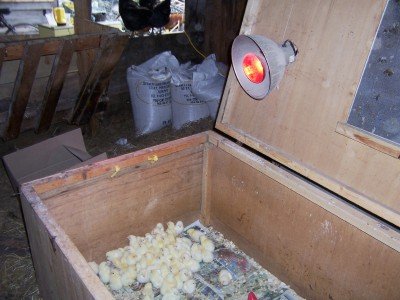 Our broody box design provides for both heat and ventilation
Our broody box design provides for both heat and ventilationAVOID troubles with your chickens when possible
It's good to detect problems early on; it's even better to AVOID troubles with your chickens in the first place. We now rarely lose a bird from the causes given above, because we've learned how to anticipate and prevent trouble.
We also raise our meat birds on pasture. Giving birds access to sunshine and fresh ground to scratch goes a long ways towards avoiding problems.
We use portable coops and electric mesh fencing to keep the birds where we want them and keep predators out. We can easily move this setup to fresh ground when needed.
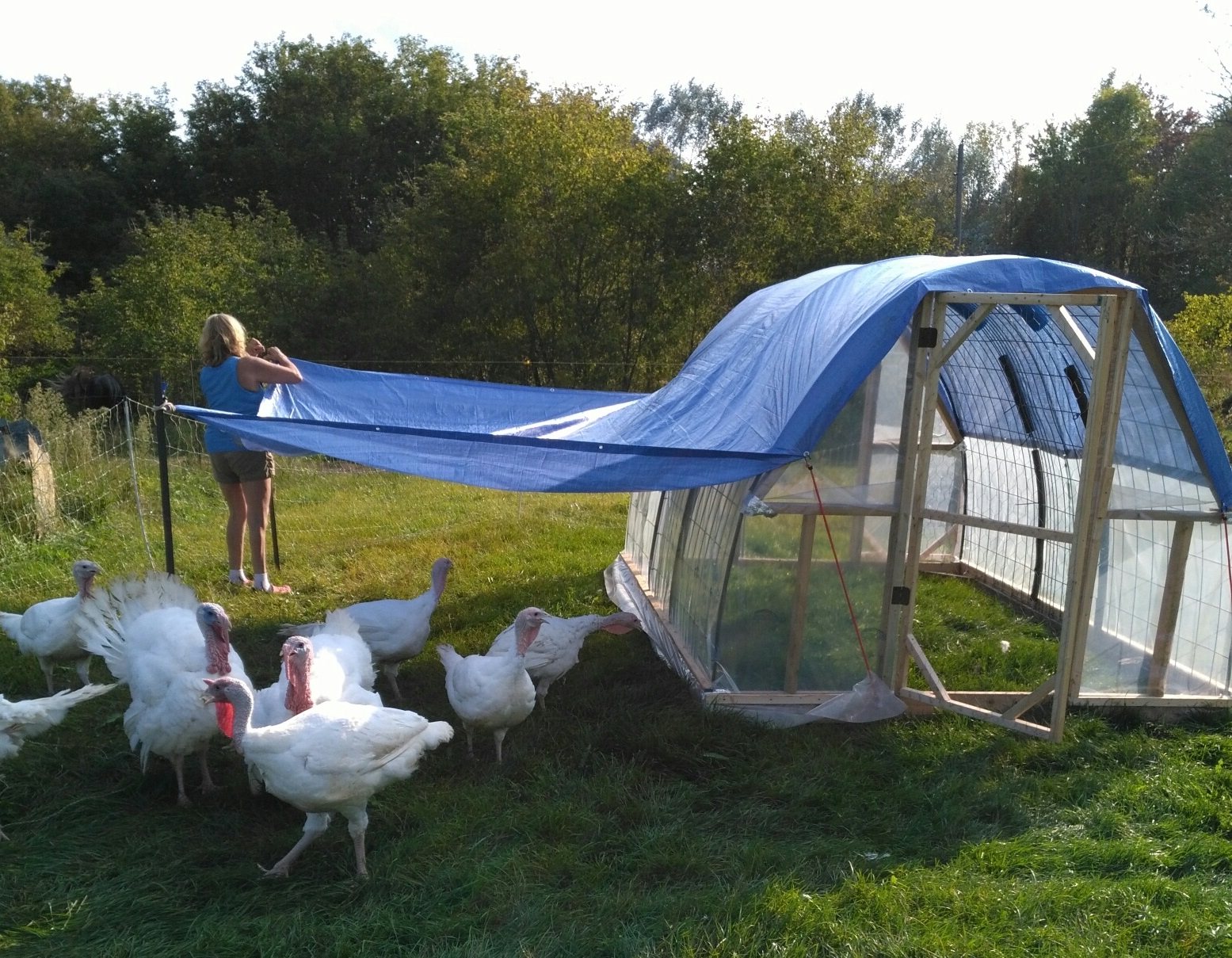 We built a small fleet of hoop coops to raise our meat chickens and turkeys
We built a small fleet of hoop coops to raise our meat chickens and turkeysTo sum it up, successful chicken raising depends on good observation. Pay attention to your birds' behaviour and appearance when you feed them. Isolate and treat birds that aren't thriving as soon as you see a problem.
If you are ready NOW to raise chickens on your small property either to
put food in your freezer or some money in your wallet, you might want to check out my book How to Raise Meat Chickens. A LOT of information, plus plans for my movable coop and the new Hoop Coop.
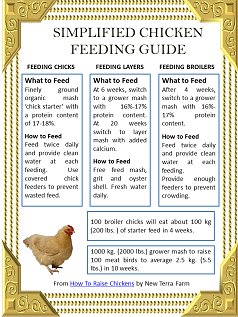
We've made feeding your birdies easier with our free Simplified Chicken Feeding Guide.
Over the years we have evolved an simple way to feed chicks, layers and meat birds. Our birds do very well with this method.
Bootstrap Birdies! This is the latest edition of How to Raise Meat Chickens, now with TWO bonus chicken coop plans:
- the original
Movable Coop, and;
- the New Terra Farm Hoop Coop.
Or for an even better deal, get How to Raise Meat Chickens and save 60% when you upgrade to my Complete Start Farming Pack
- Home Page ›
- Raising Chickens ›
- Chicken Raising Tips
Recent Articles
-
A 52 week harvst to stretch and your income
Apr 16, 25 07:48 AM
A step by step approach to build a 52 week harvest plan for more yield and more income -
Backyard Garden Profits your key to a successful small market garden
Apr 06, 25 05:38 AM
I wrote Backyard Garden Profits for the small grower who wants to launch a successful side hustle gardening for money. Practical actionable advice small-scale growers who want to earn more, waste less… -
Homesteader Book Bundle only from New Terra Farm
Apr 01, 25 04:58 PM
If you have a hankerin' for country living, my best value Homesteader Book Bundle is a great resouirce.
